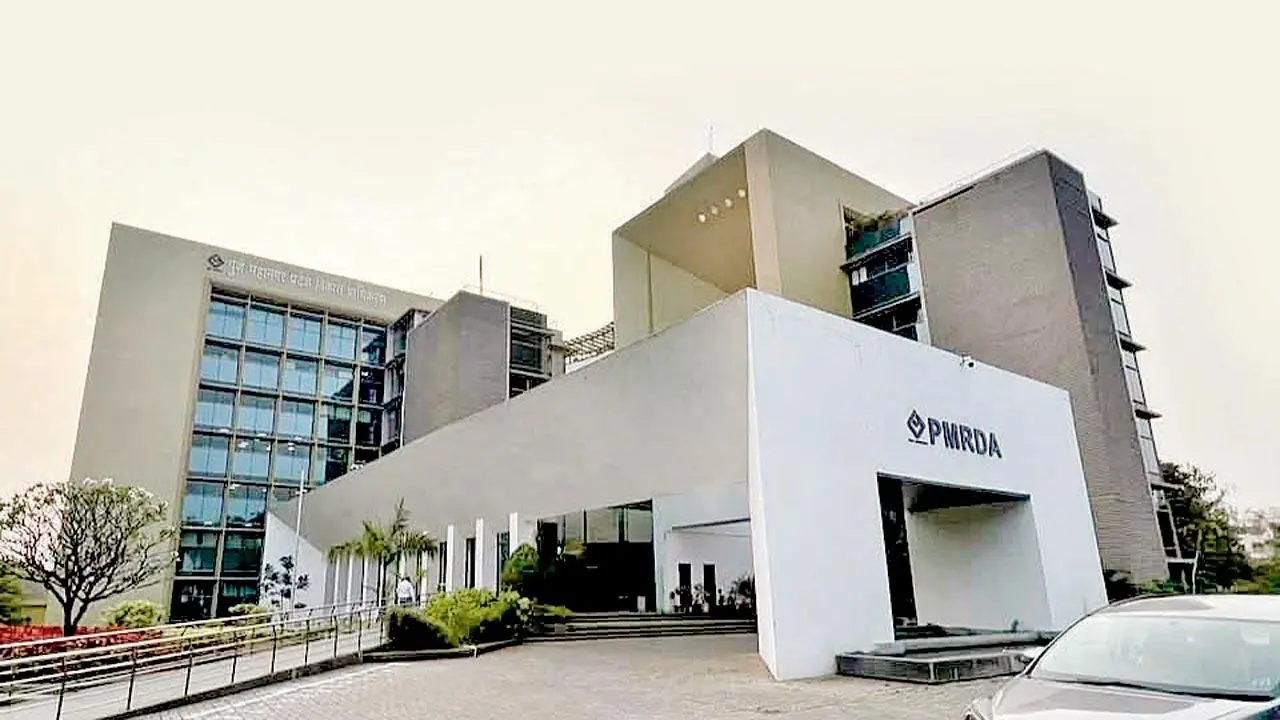PMRDA to issue occupancy certificates for old buildings with valid town planning nods; hundreds to benefit

PMRDA office located near Akurdi railway station in Pune. Pic/By special arrangement
In a major relief to residents and property owners, the Pune Metropolitan Region Development Authority (PMRDA) will soon begin issuing occupancy certificates (OCs) to constructions that had received valid permissions from the Town Planning Department but were previously denied OCs.
There is currently no official data on how many such properties exist without occupancy certificates. However, the move is expected to benefit hundreds of buildings within the PMRDA limits that have long awaited legal recognition, despite having received construction approvals before the authority’s formation. Dr Yogesh Mhase, PMRDA commissioner, said, “Buildings that received official permission from the Town Planning Department before PMRDA’s formation will now be granted occupancy certificates if constructed as per the sanctioned plan.” He added that residents can approach the authority for this purpose, and all relevant documents will be verified before issuing the certificates.
Many residents have faced difficulties securing bank loans or selling their flats due to the absence of occupancy certificates—even when their buildings were approved under earlier norms. This has caused considerable hardship for those who built or purchased properties before 2013. According to Section 7.6 of the MRTP Act and Section 2.10 of the Unified Development Control and Promotion Regulations (UDCPR), there are provisions for granting OCs in such cases. These laws apply to PMRDA as well. However, until now, the authority had cited a high court judgment related to Mumbai municipal limits to deny such applications, officials said.
Despite earlier approvals by the Town Planning Department, buildings constructed before PMRDA’s establishment but lacking occupancy certificates are now likely to receive them, provided they adhere to the sanctioned plans.
For the past decade, prior to PMRDA’s establishment, non-agricultural (NA) permissions and building approvals in villages under its jurisdiction were granted by the Town Planning Department of the district authority. Once approved, constructions were considered authorised. However, buildings approved before 2013, or flats purchased in them, often lack OCs. As a result, banks have refused loans, and selling such flats has become difficult.
Officials clarified that OCs will only be issued after detailed verification by authorities from the district collectorate. Often, OCs were denied due to unauthorised extensions made by owners or developers. Such deviations must first be regularised through official permissions. PMRDA officials confirmed that OCs will not be issued for constructions with illegal extensions.
An urban planning expert explained that an occupancy certificate is an official document issued by the local civic authority certifying that a building has been constructed in accordance with approved plans and is safe for occupancy. It is essential for legal occupation, securing home loans, and obtaining utility connections like water and electricity. Without it, the building is considered unauthorised for residential or commercial use.
To improve citizen access and administrative coordination, PMRDA is believed to have launched local offices in eight villages starting May 1. The PMRDA covers over 6000 sq km and includes 697 villages. Currently, residents must travel to the Akurdi head office even from remote areas. The new local offices are aimed at reducing this burden.
Citizens can meet PMRDA officials every Monday and Thursday
In a move to enhance public engagement and convenience, all department heads at the Pune Metropolitan Region Development Authority (PMRDA) will now be available in their offices to meet citizens every Monday and Thursday.
This directive, issued by Metropolitan Commissioner Dr Yogesh Mhase as part of the state government’s 100-day action plan, ensures direct interaction between citizens and senior officials. These designated days will allow citizens to raise concerns without delays.
To maintain smooth developmental operations, Wednesdays and Fridays have been allocated for site inspections and regional office visits. Additionally, citizens can meet subordinate officers every Tuesday, Wednesday, and Friday between 3 pm and 6 pm.
The PMRDA has also standardised lunch break timings for all staff from 1.30 pm to 2.00 pm. Those wishing to meet senior officials are encouraged to visit the PMRDA office on Mondays or Thursdays.
 Subscribe today by clicking the link and stay updated with the latest news!" Click here!
Subscribe today by clicking the link and stay updated with the latest news!" Click here!








